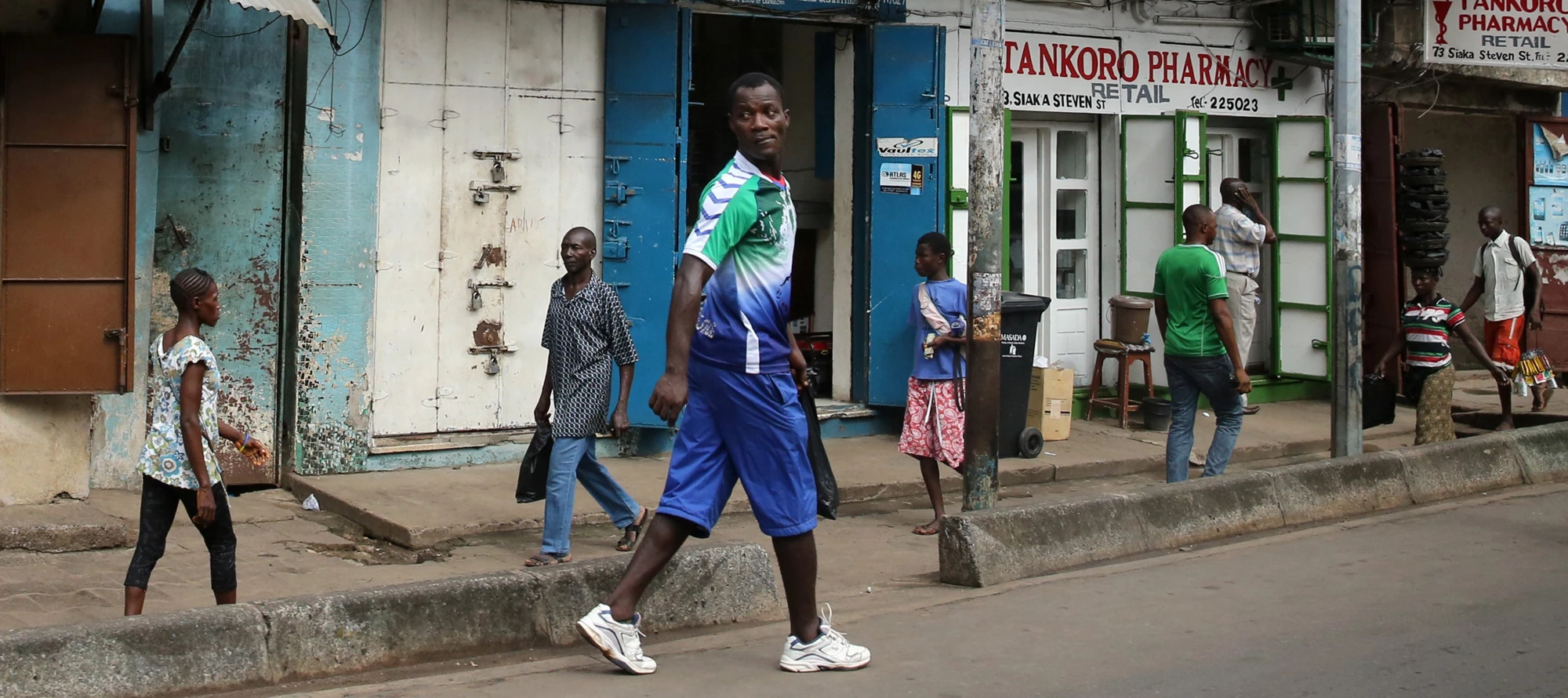 Daily life in Freetown, Sierra Leone. Photo: © Dominic Chavez/World Bank
Daily life in Freetown, Sierra Leone. Photo: © Dominic Chavez/World Bank
The COVID-19 pandemic is a public health emergency, an economic plight, and is revealing underlying structural inequality that has left many behind. The pandemic is more concentrated in urban areas, and in developing countries, hitting the urban poor and the informal sector living in slums and settlements. Mayors the world over are at the frontlines of all these challenges - and all at once.
This week, I was fortunate enough to be part of a Global Platform for Sustainable Cities discussion with three mayors from three very different cities – Freetown, Sierra Leone; Helsinki, Finland; and São Paulo, Brazil. While the scale of the pandemic has been different in each of these cities, the mayors were united in their absolute determination to turn a crisis into an opportunity for a green and resilient transformation of their cities, whilst also creating jobs. I was really struck by the positive energy of these city leaders who are living through the toughest of times.
“As governments take steps to rebound economically it’s clear that there is no sustainable, resilient future without sustainable, resilient, livable and creative cities.”
Mayor Yvonne Aki-Sawyerr of Freetown – a city of over 1 million people, a quarter of whom live in 74 informal settlements – talked about the city’s long-term strategy for a greener, fairer, more creative, more efficient, and more livable urban environment. This includes a massive tree-planting initiative and a drive for energy efficient public transportation, including Freetown’s first cable car system. There was also a creative whole-of-value chain effort to address solid waste management which also created jobs, especially for the city’s young people. It started with the World Bank program to improve the city’s waste management, whereby in October 2019 the city provided 800 young people with tricycles to navigate roadless areas in informal settlements to collect waste. From a base of zero, they now have over 30,000 residents as their customers keeping streets clean and provided jobs, even during the pandemic. While COVID-19 has had a big impact on the economy bringing job losses, the city has managed to stay afloat due to earlier efforts to mobilize international resources and also because it had expanded its revenue base through the development of a progressive property tax rate system.
Helsinki Mayor Jan Vapaavuori spoke about his city’s bold plans to become carbon-neutral by 2035. That means reducing its greenhouse gas emissions by an impressive 80%. To reach their goal, the city will phase out its two coal-fired power plants by 2029, which is a big challenge for a city that meets 50% of its heating needs from coal. There were many incentives introduced, including launching the Helsinki Challenge – a global competition offering €1 million to anyone able to come up with the best idea. He also talked about how to reduce traffic by ensuring people can walk and ride their bicycles in the city.
We also heard from Deputy Mayor of São Paulo, Luis Álvaro Salles, who spoke of efforts underway to green Latin America’s largest metropolis. Under Mayor Bruno Covas, the team is developing 12 new parks, revitalizing 18 existing ones, and setting up recycling points throughout the city to dispose of waste in a sustainable way. The city has also planned to transform an existing elevated highway into a 3-kilometer-long linear park, the longest green elevated corridor in the world. COVID-19 has brought devastation to this city with thousands of deaths and a huge economic impact. Yet, the city has stepped up its efforts to reach its most vulnerable people –building new hospitals in record time, establishing the São Paulo Solidarity City Program to reach its poorest people with food, masks and hygiene kits while also continuing its food in schools program. I was moved to hear that the city is planting a tree for every citizen lost to COVID-19, a powerful living memorial to those we’ve lost.
Our good colleague and friend Carlos Manuel Rodriguez, the new CEO of the Global Environment Facility, brought his wisdom as a former environment minister of Costa Rica. He warned that even bigger shocks are ahead for cities like Freetown, Helsinki and São Paulo which is why investment in nature and resilience is so critical.
We closed with two important conclusions. First that with over 2 billion people moving to cities over the near future, the imperative for urban planning with proper land use and spatial planning was crucial. Yvonne made the clear point how unplanned cities become so inefficient and how the crisis offers opportunity to rebuild green, livable and resilient cities which are well planned.
Second that livable cities are the key to creativity and productivity, and such creative cities will thrive. Cultural and creative industries are a source of 40 million jobs globally and contribute over $2 trillion to the global economy. Lockdowns have affected festivals, theaters, events, museums, and culinary activities that are at the core of the vitality of cities. Special attention is needed to ensure that the creative communities can also respond to the effects of the pandemic, including innovative solutions to continue showcasing their creative products.
As governments take steps to rebound economically it’s clear that there is no sustainable, resilient future without sustainable, resilient, livable and creative cities. Recovery plans, stimulus packages and national budgets need to support cities and communities to withstand shocks - present and future - and lay the foundation for the cities of now and the future for all its citizens.
The road to a sustainable recovery will be a major topic at our Annual Meetings next week. I hope you will join us as we bring together leaders from across sectors to help countries and cities chart recoveries that benefit people and planet.


Join the Conversation